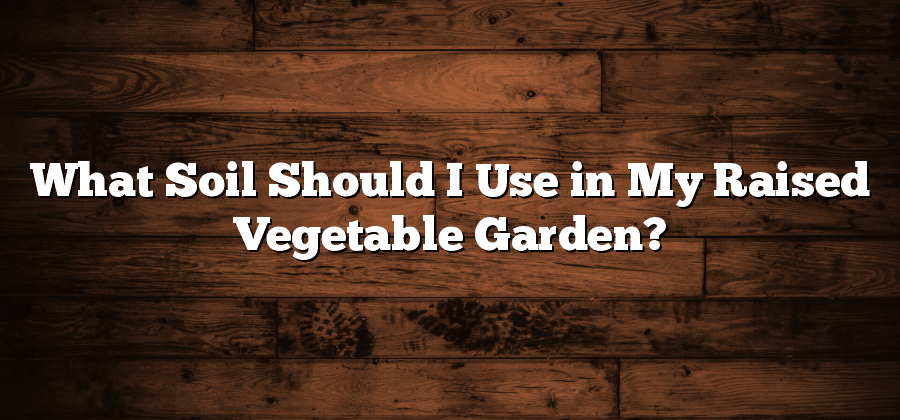Understanding the Importance of Soil Quality
Soil quality plays a crucial role in the success of any gardening endeavor. It is the foundation upon which our plants grow, providing essential nutrients and support. Understanding the importance of soil quality is essential for any gardener looking to achieve optimal growth and yield.
One key aspect of soil quality is its ability to retain moisture. A well-draining soil allows excess water to pass through while retaining enough moisture for the plants’ roots to absorb. On the other hand, poorly drained soil can lead to waterlogged roots, which can cause root rot and other fungal diseases. Additionally, soil that retains too much water may hinder the oxygen flow to the roots, leading to stunted growth and unhealthy plants. Therefore, it is vital to assess and improve the drainage capabilities of your soil to ensure proper growth and health for your plants.
Another crucial aspect of soil quality is its nutrient content. Plants require a balance of various essential nutrients to thrive, including nitrogen, phosphorus, potassium, and numerous micronutrients. Not all soils naturally contain these nutrients in the right quantities, so it is important to conduct soil tests and amend the soil accordingly. Adding organic matter, such as compost or well-rotted manure, can help improve nutrient content and enhance the overall quality of the soil. By understanding and addressing the nutrient needs of your soil, you can provide your plants with the optimal environment for healthy growth and development.
Assessing Your Raised Vegetable Garden’s Needs
Raised beds offer many advantages for growing vegetables, such as improved drainage, better soil temperature control, and reduced weed competition. However, not all raised beds are created equal, and it is crucial to assess the specific needs of your vegetable garden to maximize its productivity.
The first step in assessing your raised vegetable garden’s needs is to conduct a soil test. This test will provide valuable information about the composition of your soil, including its pH level, nutrient content, and organic matter. Understanding these key factors will help you determine what amendments or fertilizers may be necessary to create optimal growing conditions for your plants. Additionally, a soil test can reveal any deficiencies or imbalances that may be inhibiting the growth and health of your vegetables. By addressing these issues, you can ensure that your raised bed is tailored to meet the specific needs of your vegetable garden.
Choosing the Right Soil Texture for Your Plants
When it comes to gardening, selecting the right soil texture for your plants is of utmost importance. The texture of the soil refers to the size of the particles within it, which greatly affects its ability to retain moisture, provide aeration, and support root growth. There are three main types of soil textures: sand, silt, and clay. Each of these textures has its own unique characteristics that impact plant growth differently.
Sandy soil, for instance, consists of larger particles and feels gritty to the touch. It is known for its excellent drainage properties, allowing water to flow through easily. However, this fast drainage can also cause nutrients to leach away quickly, making it essential to monitor fertilization and irrigation. On the other hand, clay soil is composed of fine particles that hold moisture well but can become compacted and poorly drained. It is rich in nutrients but may require amendments such as organic matter or sand to improve its structure. Lastly, silt soil falls in between sand and clay in terms of particle size, offering moderate drainage and nutrient retention. Understanding the characteristics of each soil texture will help you make informed choices for your plants’ specific needs.
The Role of Organic Matter in Soil Health
Creating and maintaining healthy soil is essential for successful gardening. Organic matter plays a crucial role in soil health, acting as a powerhouse of nutrients and improving its overall structure. By incorporating organic matter into your garden soil, you can enhance its fertility, water-holding capacity, and drainage, providing an optimal environment for plants to thrive.
One of the primary benefits of organic matter is its ability to enhance nutrient availability. As organic matter decomposes, it releases essential nutrients like nitrogen, phosphorus, and potassium, which are vital for plant growth. These nutrients are slowly released into the soil, ensuring a steady supply for plants throughout their growth cycle. Additionally, organic matter also improves the soil’s cation exchange capacity, allowing it to retain and release nutrients more effectively. This helps to prevent nutrient leaching and ensures that plants have access to the nutrients they need for healthy development.
Balancing pH Levels in Your Raised Bed Soil
Maintaining the proper pH level in your raised bed soil is essential for the health and productivity of your plants. pH, which stands for potential hydrogen, measures the acidity or alkalinity of the soil. Different plants have different pH requirements, so it’s crucial to ensure that your soil pH is within the appropriate range.
To determine the pH level of your raised bed soil, you can use a pH testing kit available at most garden centers. The ideal pH range for most vegetables and garden plants is between 6 and 7. If your soil’s pH is too acidic (below 6), you can raise it by adding lime or wood ash. On the other hand, if your soil is too alkaline (above 7), you can lower the pH by incorporating organic matter such as compost or peat moss. Regularly monitoring and adjusting the pH level of your raised bed soil will help create an optimal environment for your plants to thrive.






